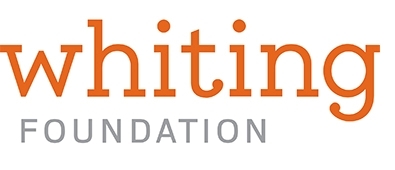Call for proposals: Whiting Public Engagement Fellowships and Seed Grants 2022-23

Faculty who are interested in being nominated for the Whiting Public Engagement Fellowship or Seed Grant may submit proposals to the Willson Center by April 15. Faculty are encouraged to review previously funded fellowships and seed grants on the Whiting website and to submit drafts to the Willson Center by March 25th for feedback in advance of the deadline.
The Whiting Public Engagement Fellowship and Seed Grant programs are intended to celebrate and empower early-career faculty who embrace public engagement as part of their scholarly vocation. Both programs support ambitious projects infusing into public life the richness and nuance that give the humanities their lasting value. The stage of a project will determine the relevant program.
The Public Engagement Fellowship ($50,000) is for projects far enough into development or execution to present specific, compelling evidence that they will successfully engage the intended public. For the strongest Fellowship proposals, both the overall strategy and the practical plan to implement the project will be deeply developed, relationships with key collaborators will be in place, and connections with the intended public will have been cultivated.
The Public Engagement Seed Grant (up to $10,000) supports projects at a somewhat earlier stage of development than the Fellowship, before the nominee has been able to establish a specific track record of success for the proposed public-facing work. It is not, however, designed for projects starting entirely from scratch: nominees should have fleshed out a compelling vision, including a clear sense of whose collaboration will be required and the ultimate scope and outcomes.
Humanities Fields: Disciplines and Subjects
Public-facing projects and professional expertise should be squarely in the humanities. (New) For the 2022-2023 cycle, the programs are focusing on the following disciplines: history; the study of literature, visual art, music, and other arts; philosophy; and area studies combining these fields, like classics and African-American studies. (Whiting distinguishes interpretive humanities from creative arts, so choreographing a new dance piece would not be eligible, but creating a film on the history of a choreographer’s work would be.)
Eligibility (Updated)
To be eligible for either program, nominees must be full-or part-time humanities faculty in both the 2020-21 and 2021-22 academic years. Faculty need not be on a tenure track to be eligible. Nominees must also be early-career: doctorate received between January 1,2008 and December 31,2020.
Nomination and Guidelines
Partner schools are invited to nominate one humanities faculty for each of the two programs. See Whiting’s full guidelines for further details about both programs and eligibility.
Information Sessions (New)
The Whiting Foundation will hold optional online information sessions at 2pmET on the first Wednesday of each month from February through June to answer any questions about the application and selection process.
Submission and deadline: Interested faculty who meet the conditions above should submit a proposal (1-2 pages) that briefly addresses:
- Project overview:
- Identify the program (Fellowship or Seed Grant) relevant to your proposal and provide a summary of your public-facing project.
- Logistics:
- Speak to the complexities of public-facing work including realistic assessments of time and effort required of different participants.
- Public engagement:
- Address how the project will reach the public and encourage participation.
- Collaborators:
- Describe others who will participate in your public facing project (teachers, community leaders, designers, museums and historical sites, technologists, nonprofit organizations, curators, scholars in other disciplines, filmmakers, etc.).
- Context and landscape:
- Address the context of your project in terms of how much the public is likely to know about your topic and where within that topic its interests likely lie, and how that affects your starting point.
- Skills required:
- Specify the technical skills required for success and indicate how you either have mastered them or will collaborate with someone who has.
Faculty should submit their proposal and CV to Dr. Lloyd Winstead, Senior Associate Director at the Willson Center, at winstead@uga.edu by April 15. Please submit drafts by March 25. Faculty will be notified regarding selection in May.
